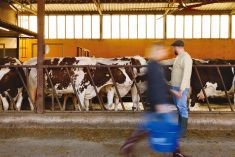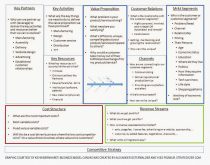Imagine there was a relatively simple way you could amp up your leadership skills, reduce your stress, help you more easily resolve conflict and provide insight into what other people are thinking and feeling.
Emotional intelligence, first identified by researchers John Mayer and Peter Salovey in 1990, was originally presented as the ability to understand one’s own emotions (and to manage them effectively), as well as to recognize and influence the emotions of others. Sometimes referred to as EQ, or emotional quotient to distinguish it from IQ, or intelligence quotient, the concept was popularized by psychologist Daniel Goleman in his 2012 best-selling book Emotional Intelligence: Why it Can Matter More than IQ.
At its core, TraceyGurton, who teaches at the University of British Columbia Sauder School of Business in Vancouver, says emotional intelligence includes self-awareness, self-management (which covers self-regulation and self-motivation), social awareness and social skills. These human relations skills, or “people skills,” enable us to work with others more effectively.
Read Also

How scientists are using DNA and climate data to breed crops of the future
A method for forecasting how crops will perform in different environments so that plant breeders can quickly select the best parents for new, climate-resilient varieties.
Although emotional intelligence does not come naturally to everyone, Gurton, who teaches an emotional intelligence course for managers, says we can learn and get better at it with effort. According to Gurton, EQ training should involve some thoughtful self-reflection, feedback seeking, readings, facilitated workshop delivery, a lot of practice (activities, discussions, challenges), and a chance to interact and improve alongside others in a live setting.
Outcomes should include a clearer understanding of your own personal core values, your strengths and weaknesses and your leadership style. “We would also hope to enhance our confidence in giving and receiving feedback, enjoy improved communication with others, display a less reactive style of handling challenging situations, more empathetic interactions, and an appreciation of the gifts and talents of others,” says Gurton.
While it can be difficult to measure the impact of EQ training on the bottom line, Gurton says if managers choose to put their new skills into action, productivity, employee engagement, organizational commitment and overall organizational culture could be expected to improve.
As an added bonus, strengthening our EQ skills should pay off in our personal relationships as well as on the job. Gurton explains that training provides a journey of self-discovery, including how and why we come across to others the way we do. “When we become more self-aware, more mindful, more approachable, more civil, and yet also clear with expectations, thoughts and feelings, we become better and potentially humbler versions of ourselves. That cannot help but transfer into our regular everyday lives.”
EQ can cost you more than you know
Leadership coach Kelly Dobson says he is often approached by farmers who aren’t sure what the problem is but know something has to change. They may be suffering from chronic stress or there are recurring problems in the farm business, such as high employee turnover, that they haven’t been able to solve.
Dobson, who is also the leader of a fourth-generation farm in Fairfax, Man., works with his coaching clients to help them see how self-awareness, well-being, a growth mindset and business management are connected.
His clients tell him that one of the first things they notice after they start leadership coaching is that their stress levels have decreased. They also find they are “capable of more than they thought… that they can do more with the resources they have,” says Dobson.
It’s also common for farmers to approach Dobson looking for solutions because they are having a problem with someone else. But he points out that you can’t change other people, you can only change how you respond to them. That’s a breakthrough for many people, he says.
With greater self-awareness also comes improved communication. With more clarity, Dobson says people are able “to find the right time, right place, right tone and right words” to have the hard conversations with employees, family members and advisors.
He says that when people aren’t clear with one another, there’s a lot of energy tied up. “It’s exhausting to be stuck. It wears them down.” But when people “figure out what they want, they are in alignment and can take action to move forward.”
Fortunately, this is a skill set that can be learned with coaching and training, says Dobson. “We don’t have to be limited by our unconscious behaviour.”
Dobson says there are several ways to cultivate more self-awareness.
For starters, he says it’s about having a growth mindset, acknowledging “I don’t know” and surrounding yourself with others who have a different skill set.
When we are more self-aware, we also become more curious about others. “Curiosity creates clarity with fewer assumptions about the other person’s story,” he says.
Breathwork and meditation are tools that can help us regulate our emotions and nervous system. Too often we’re holding our breath or breathing shallowly as a result of chronic muscle tension which can lead to physical health issues such as high blood pressure.
Dobson says it’s also important to prioritize our physical health. “If you’re exhausted or suffering from burnout or you’re tired, haven’t eaten well, or aren’t hydrated, you won’t be showing up at your best.” There have been times, he says, when it has been necessary to help a client get into a better place mentally or physically before beginning the work to increase self-awareness.
Becoming more self-aware on our own is difficult, so Dobson recommends surrounding yourself with a support system — a coach or a mentor — who can help you develop this skill set. He says it’s possible to see big improvements even in a few months. “For the engaged client, the process is life changing.”
That’s been the case for Craig Lehr, a third-generation farmer near Medicine Hat, Alta. He says that being coached by Dobson has helped him to manage his own reactions so he can be a better manager. As a result, he’s more confident, better at recognizing and controlling his anxiety, and communicating.
A partner at Short Grass Ranches, Lehr says the operation’s land base and number of cattle have grown during the past two decades. At the same time, family members, who were also partners, have left and been replaced with staff. He has found managing staff is very different from working with partners.
Lehr realized he was micromanaging his staff instead of enabling them. “I would have run myself into the ground,” he says. Now, he keeps the vision of the kind of manager he wants to be top-of-mind to guide his interactions with staff. This has allowed him to take time away from the farm which he says is important for maintaining balance.
Lehr says he’s also making better decisions now, which has a direct financial benefit. “A poor decision can cost you a lot in a hurry,” he says. “It could cost hundreds of thousands of dollars or even millions.”
But the changes didn’t happen overnight. “There’s a learning curve. You need to do something many times for it to be second nature… I still make mistakes sometimes,” says Lehr.
Resources
- Part of Me: Learn Who You Really Are, What’s Driving You, and How to Get Out of Your Own Way, a book by Paul Wyman (Inner Team Dialog, 2024)
- Farm Business Management’s National Farm Leadership program
- Leadershift’s Insight program (eligible for cost-share funding in several provinces)
















